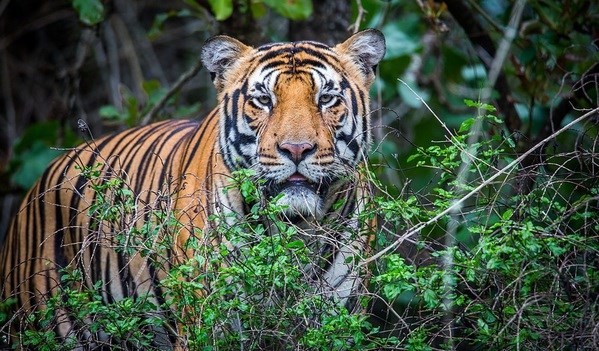
Legal foundations sought for tiger conservation in Viet Nam
Latest
 |
| Tiger in Viet Nam. (Photo courtesy of the Ministry of Natural Resources and Environment) |
Bui Thi Ha, ENV deputy director, said that the wild tiger population has decreased significantly in Viet Nam and all around the world over the past 30 years. Meanwhile, the breeding of tigers for "non-commercial" purposes by individuals and businesses in Viet Nam is growing strongly with the number of registered captive tigers increasing over the years.
In the near future, relevant state agencies will conduct surveys and create records of all tigers being raised in Viet Nam, as well as set up a national database to manage tigers being kept in captivity within the framework of the National Programme on Tiger Conservation, she said.
Ha said this activity needs to be carried out at the same time with the adoption of measures to ensure the tiger conservation goal of Viet Nam and the world.
According to the World Wildlife Fund (WWF), there were less than five tiger individuals left in the wild in Viet Nam in 2016. The International Union for Conservation of Nature and Natural Resources also said that there are no signs of the presence of wild tigers in the country and there has been no further survey of the tiger in Viet Nam since 2009. Although there is no official statement, many people suggested that tigers may have become extinct in Viet Nam.
Participants at the seminar proposed the Government and relevant agencies complete legal provisions to tighten the management of tiger farming in Viet Nam.
In the immediate future, it is necessary to issue a specific policy on breeding tigers, including a regulation on birth control to ensure that the tiger population is maintained at a level that supports conservation efforts, they said. Monitoring mechanisms should also be developed to prevent facilities from trading wildlife illegally.
The participants underlined the need to devise a separate legal document to comprehensively control the operation of non-commercial wildlife farms, including those that raise tigers as the foundation for the operation of legal establishments in the long term.














